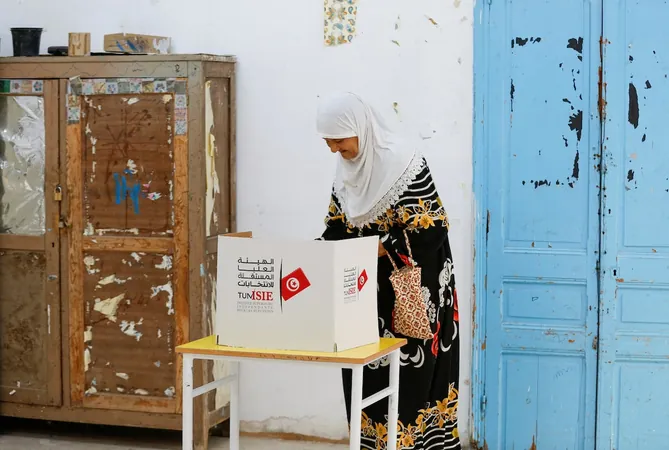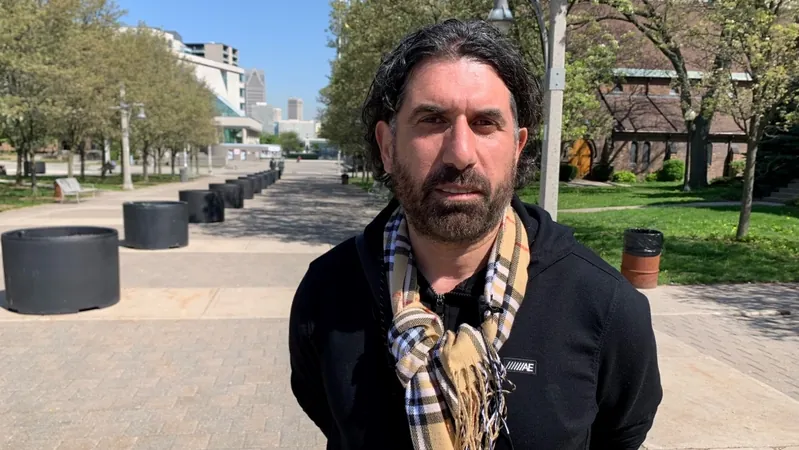
Tunisian President Kais Saied: The Rise of Autocracy Amidst Election Manipulation!
2024-10-07
Tunisia's Grim Political Future
Tunisia appears to be spiraling towards a grim future as President Kais Saied faces almost no credible opposition in an election that could spell the demise of the democratic gains made since the Arab Spring. With most rivals either jailed or banned, Saied seems on track for an overwhelming victory—an alarming signal of authoritarian rule.
Election Results and Voter Sentiment
A recent survey from Tunisia's national television, shortly after the polls closed on Sunday evening, projected that Saied would clinch a staggering 89 percent of the vote. Official results are expected to be unveiled early this week, raising concerns about their validity given the extreme suppression of dissent.
Consolidation of Power
In a troubling escalation of power, Saied, who initially assumed the presidency in 2019, has progressively consolidated control over the North African nation. Following the dissolution of parliament in 2021 and the suspension of the constitution, he orchestrated a new charter that significantly strengthens his authority. Analysts warn that following this election, his regime could resemble a near-dictatorship.
Voter Turnout and Public Response
Voter turnout was alarmingly low—only 28 percent at last count—as many Tunisians opted to boycott the polls in protest against the blatant suppression of key opposition candidates. This occurred despite urgent calls from Saied’s ruling coalition for supporters to cast their ballots.
The Fate of the Arab Spring Spirit
The spirit of the Arab Spring, which ignited in Tunisia in 2010-2011 leading to the ousting of long-time dictator Zine El Abidine Ben Ali, seems to have all but faded. For a decade, Tunisia was celebrated as a beacon of democracy in the Arab world. Yet, the current political climate threatens to undo these hard-earned freedoms.
Flaws in the Recent Election
The latest election is inherently flawed, consolidating Saied's power even further. Observers note that at least nine potential candidates faced imprisonment or prosecution, while independent election monitors were barred from observing the process. The electoral commission, composed entirely of Saied's appointees, has disregarded judicial appeals aimed at ensuring fairness.
Expert Opinions on the Election
“This is a rigged charade,” declared Monica Marks, an assistant professor at NYU Abu Dhabi with expertise in Tunisian politics. She observed that many citizens feel the election lacks genuine competition and are left unaware of their alternatives due to stringent media restrictions.
Limited Opposition Candidates
Only two contenders have been allowed on the ballot against Saied. Ayachi Zammel, one of them, has since been imprisoned under dubious charges related to voter signature irregularities. His lawyer has called these accusations a "farce." The other, Zouhair Maghzaoui, is perceived as a minor player who has previously shown support for Saied's regime.
Concerns Over Popularity and Legitimacy
Growing concerns regarding Saied's waning popularity contribute to his oppressive tactics. Unpublished polling by the International Crisis Group reveals disheartening support levels for Saied, ranging between 20 to 25 percent among likely voters. This fear of diminishing power has led to a widespread crackdown, with even officials from the Tunisian Swimming Federation arrested for allegedly conspiring against state security.
The Future of Saied's Regime
Experts suggest that while Saied is likely to maintain his grip on power, his legitimacy may suffer both nationally and internationally. Heightened social and political tensions loom on the horizon, with possibilities of excluded candidates contesting the election's validity and mobilizing their supporters in public demonstrations.
International Dynamics and Backlash
The Institute for Security Studies highlights that Saied's ability to evade global backlash against his power plays can be credited to his cooperation with European nations on immigration control, which has muted potential criticism directed at his regime.
Looking Ahead
In the wake of these developments, it remains to be seen whether Tunisia’s proud legacy of democratic resistance will prevail against the ominous tide of authoritarianism. The world is watching as the lessons of the Arab Spring face their most significant test yet.









 Brasil (PT)
Brasil (PT)
 Canada (EN)
Canada (EN)
 Chile (ES)
Chile (ES)
 España (ES)
España (ES)
 France (FR)
France (FR)
 Hong Kong (EN)
Hong Kong (EN)
 Italia (IT)
Italia (IT)
 日本 (JA)
日本 (JA)
 Magyarország (HU)
Magyarország (HU)
 Norge (NO)
Norge (NO)
 Polska (PL)
Polska (PL)
 Schweiz (DE)
Schweiz (DE)
 Singapore (EN)
Singapore (EN)
 Sverige (SV)
Sverige (SV)
 Suomi (FI)
Suomi (FI)
 Türkiye (TR)
Türkiye (TR)